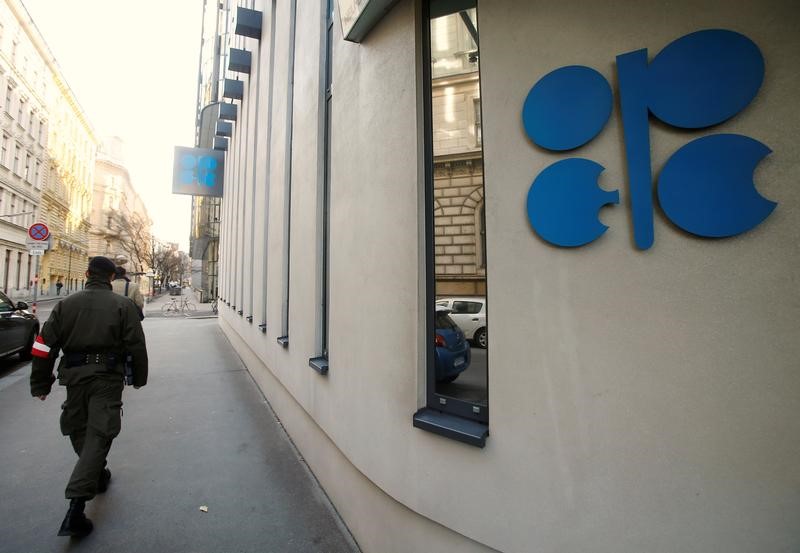By Peter Nurse
Investing.com - Oil prices bounced Tuesday, rebounding after recent hefty losses, helped by reports that the outbreak of the coronavirus in China may be peaking. However, doubts still remain about the extent and timing of future output cuts from major producers.
By 9:15 AM ET (1415 GMT), U.S. crude futures were 2.1% higher at $50.62 a barrel, while futures on Brent, the global crude benchmark, were up 2.2% at $54.66 a barrel.
The oil market has fallen for five weeks in a row as the virus has fed through to a sharp drop in Chinese demand. Combined losses over the five weeks stood at more than 22% for both benchmarks, leaving them in bear market territory, and susceptible to a bounce.
The World Health Organization put the death toll in China from the virus Tuesday at 1,017 people, with over 42,000 cases confirmed. The number of confirmed new cases on Tuesday was down 19% from Monday's level and a senior Chinese epidemiologist told Reuters he expected the virus to have peaked by the end of the month.
Even so, analysts at Oslo-based Rystad estimate global oil demand growth will fall by 900,000 barrels a day in the first quarter, with China accounting for one third of that.
JPMorgan (NYSE:JPM) has slashed its forecasts for Chinese GDP growth this quarter to around a 1% annualized pace, on the assumption that contagion peaks in March and factories slowly resume opening this month. It then expects a rebound to an annualized 9.3% in the second quarter.
Should the contagion not peak until April, the economy could contract in the first quarter, with a rebound spread over the second and third quarters, the JPMorgan (NYSE:JPM) analysts said.
In supply news, Argus Media reported Kazakh officials as saying they have been asked to implement a cut of 1.5% of its total oil production. This would translate into something approaching the 600,000 barrels a day cut that the so-called OPEC+ group's technical officials suggested last week.
The group still awaits a response from Russia on whether it would back deeper cuts and extend the current deal through until the end of the year.
“Meanwhile the larger OPEC+ meeting is still scheduled for 5 and 6 March,” said ING analysts in a research note, adding that many in the market see this as waiting too long to take action to offset the demand destruction.
In any case, U.S. Energy Secretary Dan Brouillette said Tuesday, "Their ability to impact oil prices in the manner in which they did, you know, three, four, five decades ago is just fundamentally different." Brouillette was quoted by Reuters on the sidelines of a UN conference in Vienna.
